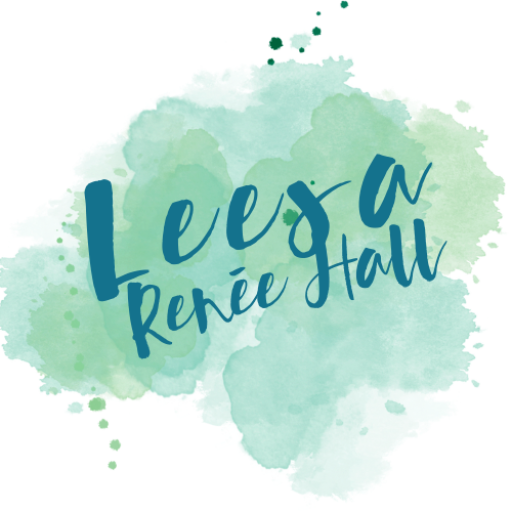I’ve noticed as of late that alot of my colleagues in the podcasting space have divorced themselves from the word “podcast” and now embrace the word “new media.” In other words, being a new media generalist seems to be more attractive than being a podcasting specialist.
For example:
- Paul Colligan, who wrote the forward to my book, now has a live show called New Media Matters
- Jason Van Orden, who authored Promoting Your Podcast, now has a weekly post called New Media Digest
- The Podcast & New Media Expo is now only known as the New Media Expo
- Even my publisher was insistent that my podcast be called New Media Tycoon instead of Podcasting for Profit
I may be missing the writing on the wall, but whenever I go to networking events, about 99% of the room has no clue what podcasting is. And that tells me that the demand for podcasting is still to come.
I was a generalist at one point. When I was laid off in 2004, I tried my hand at life coaching. I was dirt poor. I think I made all of $5000 that fiscal year. Some of you would argue that any new business will struggle at first. Sure, but it had alot to do with the fact that I generalize.
When you generalize, you’re a dime a dozen. People can waft in the breeze and become non committal to you because there’s another new media generalist around the corner.
However, as a specialist, business is much more brisk. I’m the only person in Canada who has authored a book on podcasting. Guess what that has done for my business? Phone calls and emails out of the blue from people wanting to do business with me.
If using myself as an example sounds like I’m bragging, here’s a few other people I can think of who are successful as a result of focusing on one aspect of new media:
- Ali Brown is the Ezine Queen and is making 7 figures because she focused on a niche – ezines
- The Blog Squad has built an empire helping people refine and optimize their blogs
- Christina Hills is The Shopping Cart Queen and helps people understand how to use shopping carts for online sales
- Perry Marshall helps people understand how to write effective copy for Google Adwords
- My friend, Dina Giolitto, helps people write effective sales copy to sell goods and services online
The world does need generalists. Yet in the examples above, these individuals have built thriving businesses by focusing on one aspect of new media. Being a specialist enhances your platform, your business and your profile.
I will continue to focus on podcasting until at least 60% of people I meet at networking events say “Yes, I know what podcasting is and I have one.”
My question to you – are you a specialist or a generalist? What advice can you give to be successful no matter which angle you choose? Leave your thoughts in the comments section below.


All of you have interesting points.
However, I would like to share my current experiences of being a Digital Content Manager for a prominent media personality.
For the last several months, I’ve been deep in trying to define what is that I do. Simply, what is the clearest explanation that best describes what I can do for a client.
Am I simply a Podcast Consultant or a New Media Strategist?
When I first began the assignment, my client simply wanted advice on how to produce, promote and monetize their podcast. Their original thought was that this process should be quantified and implemented within a month.
Nice thought and true. However, as we all know, there are many ways – and options of those procedures – that someone could use to promote and monetize a podcast. The concept of simply producing a podcast – and making it available – is not in of itself enough to bring the desired results that a client desires.
So what other tools would I need to bring the desired result for my client?
In terms of promotion, I can utilize social networking, social bookmarking, advertising, blog post, newsletters, email blast etc.
In terms of monetization, I could use advertising, recorded seminars, premium subscription services, transcriptions, etc.
In short, I need and want to use all of the new media apparatuses at my disposal. I’m simply not using podcasting to get the job done. I’m using new media to get the job done.
Podcasting is part of world of new media.
Even though you would like to describe yourself as a podcasting specialist, which is a great thing, you need all of new media strategies to accomplish what you want your podcast to do.
If it’s a matter of a title, Podcasting Specialist may help you in the beginning. However, awareness will catch up sooner than later.
However, in the end, New Media Strategist is where you’ll wind up.
So why not go there, teach and bring the masses with you?
I struggle with the same thing. I am literally finishing the last chapter of a book now (Producing Video Podcasts). Can most of the material in the book be applied to producing YouTube or Streaming Media… sure… a little adaption and people can get there.
Only 1/3rd of Americans have even heard of podcasting. Technology takes years to reach the 50% adoption rate… Broadband 10 years, TiVo/DVR 13 years, Personal Computer 18 years.
Podcating has been a term for less than 5 years… why are we switching already?
Interesting comment, Peter. I can see your points, especially the one where you say that the fax machine is just one part of communications. Although someone who focuses specifically on fixing fax machine is probably enjoying a brisk business 🙂
Thought provoking post, once again!
Not to straddle the fence, but I’m both a generalist and a specialist: my podcast advises folks on podcasting at a basic to intermediate level, but to a very niche market (medical folk using it to promote their practices). And I suspect that anyone who advises/consults on how-to-podcast HAS to be both a generalist and specialist, too.
I believe that part of getting ahead as a consultant will always have to involve educating your target demographic — spreading some seed around, and hoping part of a harvest comes back to you.
In the past, that took the form of explicitly defining “podcasting” and how podcasts were made and accessed.
Nowadays, ironically, that educating seems to be morphing into a shift away from the P-word, per se, and towards the phrase “New Media.” But by doing so, the educating function seems to be better accomplished.
My take is that using “New Media” marks a return of the emphasis to where it should be: away from the medium itself, and back to the message. As Jason Van Orden pointed out in his latest post, there’s less buzz about podcasting, and that is as it should be. It was natural to be excited in the first year or two about the medium, what it could do, and how it could enable individuals to do so much more, without traditional media encumbrances. It was also natural that this excitement should diminish, AS THE MEDIUM BECAME ACCEPTED INTO THE FABRIC OF COMMUNICATION SOCIETY.
No business goes on and on about how it uses FAX MACHINES! Or how its people in the field actually use CELL PHONES! Those tech items are no less critical and indispensable for all that, it’s just that the business rightfully chooses to focus its marketing on the key stuff: its mission, what it can do for its customers, and what it does better than its competitors.
De-emphasizing podcasting in favor of New Media feels like a similar shift. Less talk about one specific example of a new communications medium, and more about the variety of related digitally media, which assist folks in getting their messages out there. It’s even gotten to the point (and I think YOU provided the link to this story) where content is supposedly dead, long live communities. Not the medium nor the message, but how you link people to riff off of one another.
I try, when it comes up, to advise folks using my specific knowledge, and that is what is most helpful to them as “customers.” What equipment to pick to get a particular sound, what workflow to adopt to cut production time, how not to put your foot in your mouth with what you divulge, etc.
But what guides ME, keeps me on track, and pointing in productive and new directions, is that underlying generalist bent. That the gear is secondary to the workflow, which is secondary to the delivery medium, which is secondary to content, which is secondary to growing a viable community.
This would not be the first time that what informs consultants at the leading edge is quite different from what consumers further back need in their day-to-day.